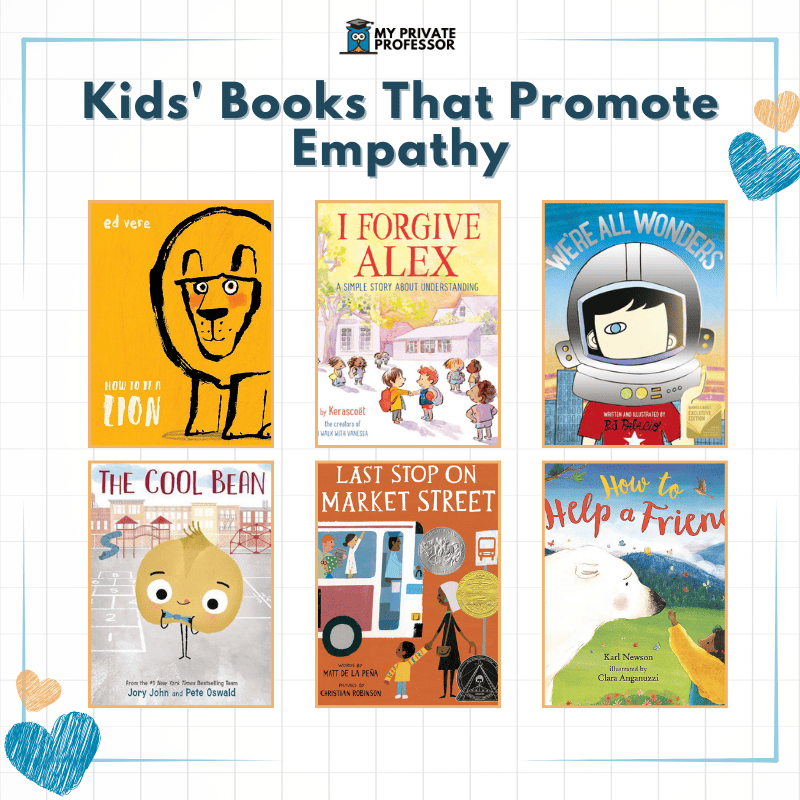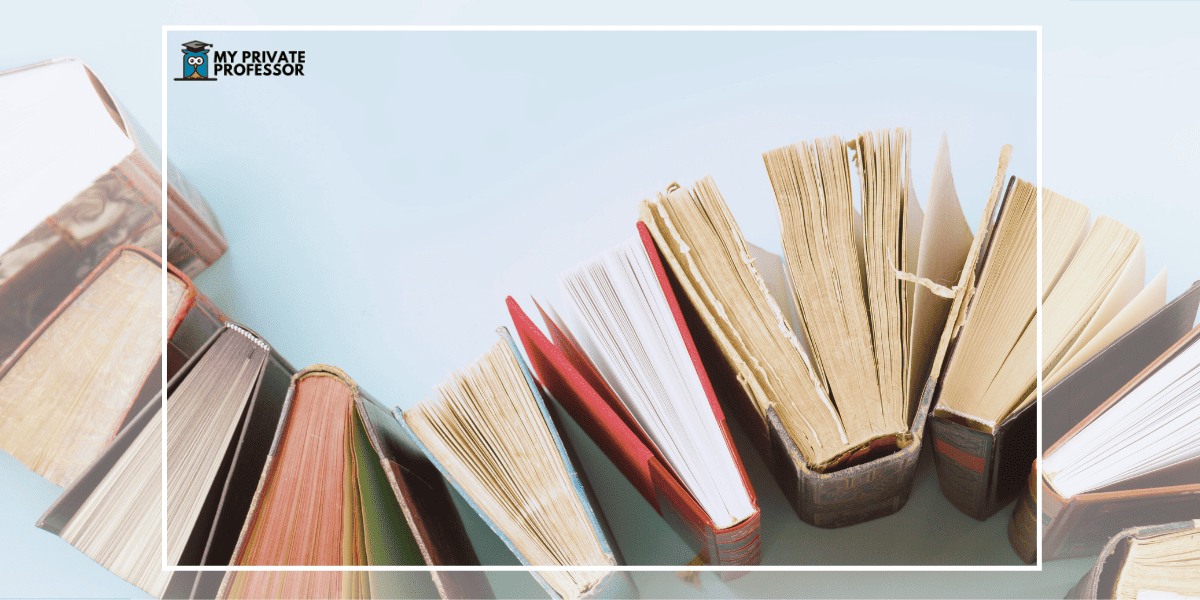There’s something very cool about books. When you dive into someone else’s world, you’re doing much more active brain work than you realize. And this cognitive process results in feeling like you almost are literally right there in the characters’ worlds.
If you’ve experienced it, you know that reading can get you right into that “flow” state. And when that happens, you might feel pure relaxation and elation. Meanwhile, you might not be aware that something else, cognitively is happening, which allows you to strengthen your empathy.
When you’re reading, you’re not only stepping into the shoes of others. You’re also making connections between your own world and personal contexts, and what you’re reading on the page. And the result is that you’re sharpening your listening skills and strengthening your ability to empathize with others.
(There’s a slight catch, though! If you can even call it that. In order to gain empathy through reading, you must include fiction in your repertoire, according to the following research.)
What the research says about reading and empathy
Numerous studies have shown that those who regularly read fiction have better-developed empathy than those who don’t.
In a 2006 study, for instance, researchers found a strong link between reading fiction and improved performance on empathy tests. The researchers tested participants on their ability to recognize author names (measuring the depth of their fiction knowledge). Then, participants completed (widely-used) empathy/social acumen tests. The researchers found that the more fiction participants read, the better they performed.
Studies conducted at Carnegie Mellon University found that when you get lost in a book, you actually begin to feel like you’re living through the characters.
Research from Emory University confirms this phenomenon, demonstrating that fiction quite literally tricks our brains into believing that we’re part of the story. And that the empathy we feel for the characters in the book can translate to how we feel about those in our actual lives.
Why is it so important for young students to develop empathy?
In a world where stress, anxiety, and depression seem all too prevalent, developing your empathy is critical in order to support those around you. But first — what really is empathy?
We use the word often, but sometimes may forget what it actually means. 
Empathy is the ability to step into someone else’s shoes and feel what they are feeling. This doesn’t mean that you need to have experienced what the other person is going through. Rather, empathy enables you to more deeply understand what someone is going through, feel with them, and share in those feelings.
What’s happening in your brain when you’re reading?
Using fMRI, a 2006 study investigated what happened in the brain when participants read words containing strong odor associations. The researchers found that when subjects looked at words with strong odor associations (i.e., “coffee”), their primary olfactory cortex was activated. This area of the brain is involved in connecting senses (such as odors) to memories and emotions.
Researchers at Emory University also found that when participants read a metaphor involving texture, the sensory cortex was activated, which is the region responsible for perceiving texture via touch.
Additional research has found that words that describe motion activate regions of the brain that are distinct from language-processing areas. Cognitive scientist Véronique Boulenger led a study where researchers scanned participants’ brains as they read sentences with motion-related words.
The scans found activity in the motor cortex, a key player in coordinating the body’s movements. Significantly, the scans showed that when participants read about movement describing leg activity, their brain showed activity in a region of the motor cortex that was distinct from the area of the cortex that was activated when participants read about movement describing arm activity.
According to researchers at Emory University, reading increases the activity in the central sulcus of the brain. This region is responsible for primary sensory motor activity. This region’s activation is the reason why, when we’re reading, we begin to truly experience the character’s world.
This shows that when you’re reading, your brain isn’t simply reading and processing the language on the page — it’s also processing the context of the words and almost going through the physical motions along with the fictional characters.
This means that you’re feeling what they’re feeling, and you’re relating to what they’re going through. The result is that reading can strengthen and elevate your empathy and social-emotional skills. 
Developing empathy can help students confront implicit biases
As humans, we sometimes draw incorrect conclusions. Often, this is due to bias. Although it’s a loaded concept, it’s crucial to recognize that it’s in our innate nature to act on implicit biases.
Implicit biases are biases about people and/or groups that we hold automatically and mostly unconsciously/subconsciously. However, they can still affect our behaviors, decisions, and perceptions.
When it comes to how teachers draw their conclusions about their students, implicit bias can get in the way.
As research suggests, children begin internalizing harmful stereotypes by the age of three, which highlights the importance of finding ways to combat biased thinking from an early age.
Harry Potter study
In a study that used the Harry Potter series, researchers demonstrated the relationship between reading and bias reduction. The researchers conducted the study in Italy, where immigrants are a stigmatized group.
Participants were split into two groups. One group (control) read passages about Harry getting his first wand. The other group read a passage where Draco Malfoy is rude to Hermione and calls her a “filthy little Mudblood.” (In Harry Potter, Mudbloods are wizards/witches born to non magical parents, a concept paralleling modern racism.)
Afterwards, the researchers assessed the children’s attitudes, finding that those who read the passage about racial prejudice had reduced their racial biases.
Saffron Dreams study
Psychology researcher Dan Johnson conducted a similar study. In one group, participants read a three thousand word excerpt on Saffron Dreams (a novel about Muslim women) in which Muslim-American women were the object of racial prejudice. The other group read a five hundred word synopsis of that excerpt, which maintained the facts but left out sensory imagery, metaphors, and character depth.
Afterwards, participants looked at faces of ambiguous Arab-caucasians and were instructed to identify the race of each person. Those who read the shorter synopsis were disproportionately likely to characterize the angry faces as Arab. Meanwhile, this bias was absent among those who read the long excerpt.
Evidently, reading fiction can increase students’ capacity for empathy, which goes hand in hand with addressing implicit biases. When students are open to understand others’ experiences, they open the door for increasing their capacity for empathy and in turn, reducing biases.
Reading can also reduce loneliness and depression
As human beings, we have a need to connect with others. That’s what makes us “social creatures.” The fact that loneliness can actually be fatal, to some extent, reflects our need for human connection.
Think about a tough time in your life when you felt like nothing was going right. Now think about those who rallied around you. Or, if you didn’t really have anyone, think about how that void felt.
Time after time, researchers cite loneliness as one of the major causes of depression. Whether you’re the biggest social butterfly out there or a true hermit, one thing holds true. we all need human connection to survive.
We also need empathy to flourish in various areas of life, like work. Successfully developing a trusting relationship requires empathy. Collaborating with and listening to others requires empathy. Brainstorming and solving problems with others requires empathy. Getting to know and learning from others requires empathy.
Those of us lucky enough to have a solid support system should take advantage of all the opportunities we have to connect with others. But maybe you don’t feel like you have that support. Or maybe you’re going through something and it feels impossible for you to reach out. This is when books can come to the rescue.
Books literally make us less lonely. You can feel completely isolated and alone one minute, then half an hour later, feel immersed in another world. How cool is that?
A 2022 study published in the American Journal of Emergency Medicine found that throughout COVID-19, reading books was an effective coping strategy for emergency health care workers, helping them to reduce feelings of stress, anxiety, and depression.
Additionally, a report by the Reading Agency found that reading or listening to an audiobook can significantly reduce feelings of loneliness and social isolation.
Final thoughts
We live in a society where, at some point or another, we need to rely on others. At any given moment in time, there are people who are in need of support from others. When we all work to develop empathy, we’re simply doing our part to simultaneously make the world a better place for everyone.
Amazingly, one of the simplest ways to improve your empathy is to read. This is something most of us can do regularly, and without breaking the bank.
In the last couple of years, we’ve increasingly seen book challenges and bans. So it’s absolutely essential to raise people’s awareness of why we need to keep our books alive — specifically, about how books providing diverse perspectives and experiences are the gateway to developing empathy.
Like most skills, expressing empathy takes practice. If you’re not a social worker or regularly doing hands-on work with others, you may not have all the opportunities in the world to do this. But luckily, you can utilize books!







